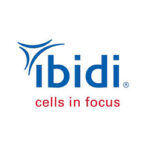The tasks of ibidi deal with the microfluidic chip design for axon outgrowth monitoring, the manufacturing of the top part of the chip and extensive experimental cell culture test series with the chip and the stimulation periphery.
ibidi was founded in Munich, Germany in 2001 as a spin-off from the University of Munich and is a leading supplier for functional cell-based assays and advanced products for cellular microscopy. ibidis microfluidic consumables made of high optical quality plastics are able to create special physical conditions like chemical gradients, controlled shear stress and electrical fields. The expertise of ibidi also includes the development of periphery instruments for the life sustainment of cells and automated microscope systems for long term observation of cell motility.
ibidi will be mainly concerned with the microfluidic chip for neuron cell culture and axon outgrowth monitoring (Demo Case 4). The tasks will start on the fluidic pattern design of the foil-based components. The design will be established in accordance with design rules of the foil based imprinting processes. It will inlude cell cultivation chambers in the mm range, with connecting channels in the size of 5 μm and below. This allows consequent separation of neuron cell bodies during formation of axon networks while electrical communication is possible through the micron-sized channels. The device should be suitable for standard fluorescence microscopes and will be equipped with electrodes for electrical cell stimulation. While establishing the microfluidic chip, ibidi will manufacture the top part with the fluidic connectors by injection moulding. Furthermore, test series on biofunctional coatings, the biocompatibility of the materials and possible sterilization methodes will be performed. Subsequently ibidi will use the assembled microfluidic chip with the integrated electrodes and the corresponding stimulation device for in vitro cell culture experiments using neurons (central or peripheral), other neural cells, or other tissue cells such as astrocytes, glia, epithelial cells, myocytes or tumoral cells. The cell cultures will be submitted to different electric pulses and the induced cell response (both physiological and electrical) will be measured.

